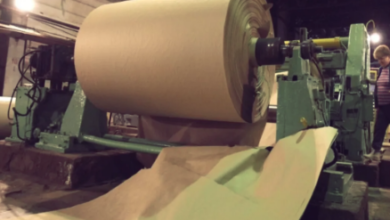How I Defied Sickle Cell with CRISPR! Discover the Untold Journey of a Tech Entrepreneur Turned Patient Advocate

On a picturesque autumn day Sickle Cell several years ago, I retrieved an envelope from the mailbox, its thickness akin to that of a Bible—a document that would alter the course of my life. The sender was Vertex Pharmaceuticals, and enclosed within was a consent form beckoning me to partake in a clinical trial for a groundbreaking gene-editing drug designed to combat sickle cell disease.
A mere week before, my wife and I engaged in a phone conversation with Dr. Haydar Frangoul, an oncologist and hematologist in Nashville, Tennessee, and the principal investigator of the trial. He provided us with insights into the trial’s nature and the progress of its initial participants. Soon thereafter, my wife and I found ourselves en route to the research site in Nashville, ready to enroll in the study, all while she was carrying our first child.
Sickle Cell
Having lived with sickle cell disease throughout my entire existence, enduring chronic pain, organ damage, and a pervasive sense of hopelessness, this opportunity represented a chance to seize control of my life—a life that included the imminent prospect of becoming a father.
The drug I was administered, exa-cel, stands on the brink of making history as the first CRISPR-based treatment to secure approval from the US Food and Drug Administration, following the UK’s approval in mid-November. As one of the few dozen patients who have experienced its effects, I testified in favor of its approval to the FDA’s advisory group in late October. The agency is set to make its decision regarding exa-cel by no later than December 8.
While I acknowledge the privilege of being an early recipient of this groundbreaking treatment, I harbor concerns about the accessibility of such life-changing medicines for others in need. Despite the promising landscape with various gene therapies in development, barriers exist, and I fear that not everyone will have the opportunity to benefit.
The process itself was grueling. Extracting stem cells from my bone marrow, utilizing CRISPR to edit them for healthy hemoglobin production, and then reintroducing them into my body constituted a months-long, intense journey. The collection process, lasting up to eight hours, necessitated blood transfusions after each session. Weeks of chemotherapy followed, aiming to prepare my body for the edited cells but entailing side effects such as nausea, weakness, hair loss, and debilitating mouth sores.
My transplant day in September 2020 marked a pivotal moment. While the care team endeavored to make it special, for me, it was a deflating experience. However, the subsequent days and months brought enrichment, liberation from the fear of impending mortality, and the joy of parenthood.
Yet, I recognize that this treatment is not universally suitable. Seventeen weeks in the hospital, coupled with the arduous process, may deter many. Moreover, the potential cost of millions of dollars per patient, if approved, poses a significant barrier.
Beyond individual challenges, societal issues loom large. The history of systemic racism and unethical medical practices within the US medical industrial complex breeds mistrust among Black Americans, potentially hampering the adoption of new gene therapies. Global accessibility remains an overlooked priority, with concerns about healthcare infrastructure in regions such as sub-Saharan Africa serving as seemingly convenient excuses.
As a beneficiary of gene therapy, I grapple with the uncertainty of my actions and their consequences. I’ve fundamentally altered who I am at a cellular level, prompting introspection about the ethical implications of playing God and the imperative to ensure the benefits of such advanced technology are universally accessible.
Jimi Olaghere, a patient advocate and tech entrepreneur, reflects on the transformative journey he undertook as a participant in a groundbreaking gene-editing trial for sickle cell disease.






